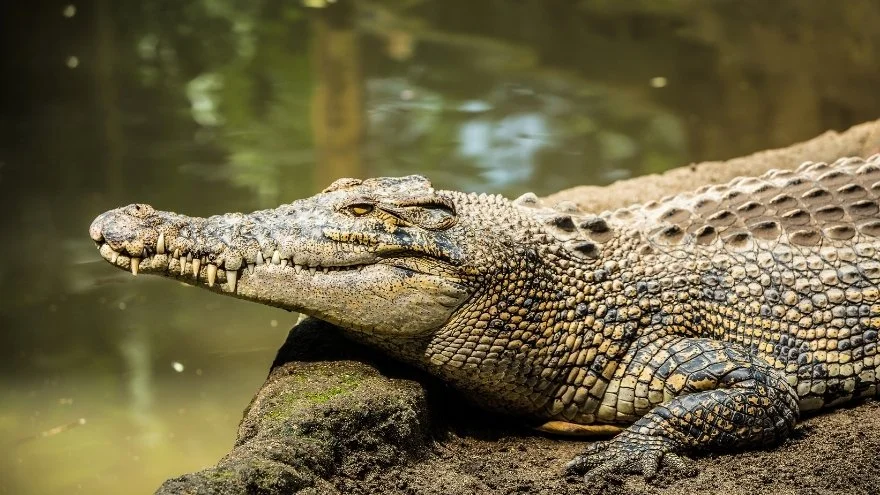When it comes to wildlife, few creatures capture our imagination quite like crocodiles and Komodo dragons. Both are remnants of a prehistoric era, living fossils that excite and terrify in equal measure.
But have you ever wondered what would happen if these two giants of the animal kingdom crossed paths? Specifically, could a Komodo dragon’s venom incapacitate a crocodile? Buckle up because we are discussing the science behind this intriguing question.
The Basics of Venom and Immunity
Before we delve into the meat of the subject, it’s essential to lay some groundwork about venom and immunity in animals. Both venomous animals and those that have developed immunity to venom have evolved complex biochemical systems that are fascinating in their own right.
The Role of Venom in Nature
Venom is not just about causing pain or death. For many creatures, venom is a tool for survival, serving various roles such as subduing prey, deterring predators, and sometimes even aiding in digestion.
- Snakes often use venom to immobilize or kill their prey.
- Some spiders inject enzymes that liquefy the insides of insects, making them easier to consume.
- Even plants like the nettle use a form of venom to deter herbivores.
Immunity
But nature is a place of balance, and where there’s a weapon, there’s often a shield. Immunity against venom has also evolved as a survival strategy for many animals, including some unexpected ones. For instance:
- The mongoose is famous for its resistance to snake venom, which allows it to prey on snakes without fear of death.
- Some birds have developed resistance to the venom of spiders and even toxic plants.
- Opossums have shown a surprising resistance to snake venom, highlighting how immunity can appear in the most unexpected places.
What Makes Komodo Dragon Venom Special
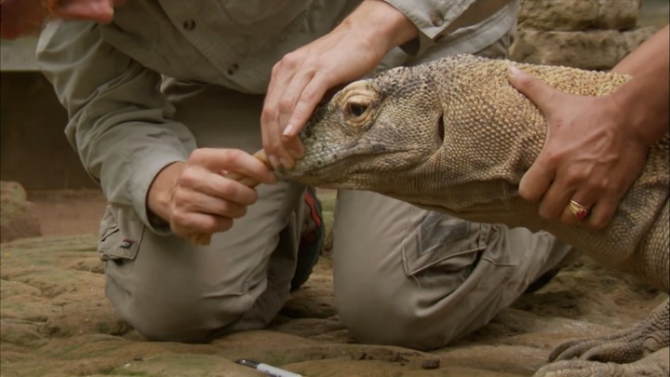
Komodo dragons are awe-inspiring creatures, not just for their size but also for their biochemistry. They are among the few lizards that possess a venomous bite, and the components of this venom make it a subject of ongoing study.
The Biochemistry
For years, people believed that Komodo dragons had bacteria-laden saliva that caused infections in their prey. While it’s true that their mouths are a breeding ground for bacteria, recent studies have shown that Komodo dragons also produce venom containing a complex cocktail of proteins and other molecules that can cause paralysis, hypothermia, and even death in their prey.
- Protease inhibitors to slow down blood clotting
- Phospholipase enzymes to break down cell membranes
- Natriuretic peptides that can induce shock
The Role of Venom in Ecology
Komodo dragons often use their venom to weaken large prey like deer or water buffalo. The animal will bite its prey and then follow it at a distance until the venom takes full effect, often leading to the prey’s demise within a matter of hours.
This adaptation allows the Komodo dragon to take down animals much larger than itself, a vital survival skill on the islands where these giants reside.
Crocodile Immune Systems
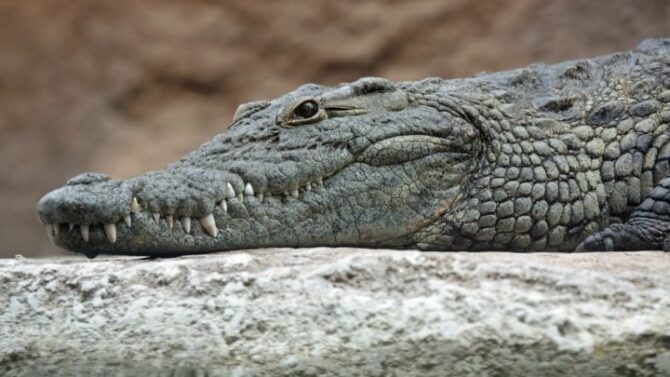
Crocodiles are another set of creatures that have been around for millions of years. Their survival is in part due to their extraordinarily robust immune systems, which have captured the interest of researchers in immunology and biochemistry.
A Biochemical Fortress
Crocodiles are known to have one of the most robust immune systems in the animal kingdom. They can survive in bacteria-laden environments, suffer grievous injuries, and yet seldom fall ill. Their blood contains potent antimicrobial peptides, which can neutralize bacteria, viruses, and even fungi.
- Leucocytes that can engulf and destroy pathogens
- High levels of antibodies to fight off infections
- Immunoglobulins specifically adapted to their environments
Immunity and Venom Resistance
While the immune system’s primary role is to fend off infections, it’s worth noting that some animals also develop immunity against venom. Given crocodiles’ robust immune system, one could speculate that they may have some level of resistance to venom.
But immunity against bacteria and immunity against venom are not the same things, so the question still stands: could a crocodile withstand a Komodo dragon’s venomous bite?
Could a Crocodile Survive a Komodo Dragon’s Bite?
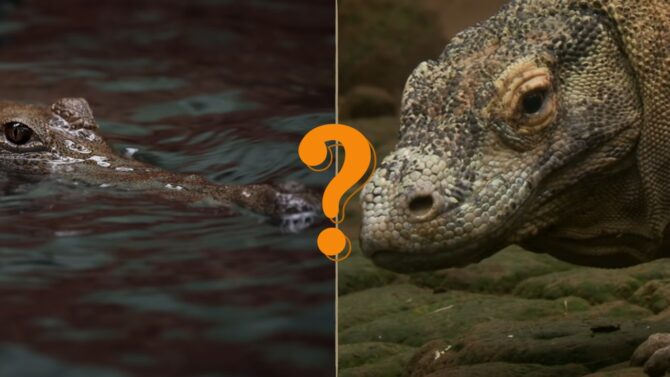
Now we get to the crux of the matter: pitting the Komodo dragon’s venom against the crocodile’s immune system. The outcome is not as straightforward as you might think.
Interactions in the Wild
In the rare instances where Komodo dragons and crocodiles might cross paths in the wild—perhaps near a water source—it’s unlikely that a Komodo dragon would attempt to bite a full-grown crocodile.
Adult crocs are simply too big and well-armored for a Komodo dragon to handle. Juvenile crocodiles, however, could be a different story, and their less developed immune systems might be more susceptible to venom.
The Limitations of Immunity
While crocodiles do have robust immune systems, it’s essential to remember that no immune system is perfect. The venom of a Komodo dragon is a complex cocktail specifically evolved to bring down large animals.
Even if a crocodile could fight off some of the venom’s effects, it’s uncertain whether it could survive the full onslaught of proteins, enzymes, and peptides that the venom contains.
What Does Science Say?
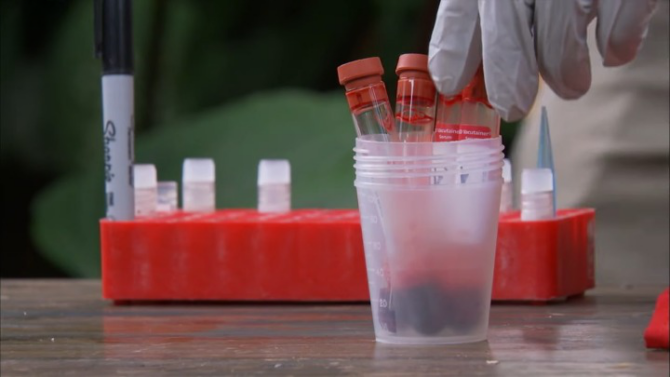
While no direct studies have investigated the interaction between Komodo dragon venom and crocodile physiology, we can make some educated guesses based on existing research in similar fields.
Biochemical Compatibility
In theory, the powerful immune system of a crocodile might offer some level of protection against the effects of Komodo dragon venom. The antimicrobial peptides in crocodile blood could neutralize some venom components, although the specificity and effectiveness of this are not known. Further research in this area could offer fascinating insights.
The Need for Experimental Data
Unfortunately, without experimental data, it’s challenging to give a definitive answer. Studies on how crocodile immune systems interact with different types of venom could offer more concrete information. As of now, the question remains mostly speculative, but it’s a topic ripe for scientific investigation.
Reality Meets Mythology
The clash between a Komodo dragon’s venom and a crocodile’s immune system is a subject where science meets the imagination. While we don’t have a definitive answer, the biological complexities at play offer a captivating look into evolutionary biology and biochemistry.
A Lesson in Evolutionary Biology
Both the Komodo dragon and the crocodile are examples of evolutionary marvels. One has developed a complex venom to take down prey, while the other has built an immune system that’s nearly impervious to infection. In many ways, their hypothetical clash serves as a testament to the wonders of natural selection.
FAQs
Are Komodo Dragons and Crocodiles Natural Predators?
No, Komodo dragons and crocodiles are not natural predators of each other. Their habitats don’t usually overlap, as Komodo dragons are primarily found on specific islands in Indonesia, while crocodiles are more widespread, inhabiting different parts of Asia, Africa, the Americas, and Australia.
Even if they were to meet, it’s unlikely that either would view the other as suitable prey due to their size and respective defensive capabilities.
Can a Komodo Dragon’s Venom Affect Humans?
Yes, a bite from a Komodo dragon can be dangerous to humans. While the venom is not usually fatal, it can cause symptoms such as extreme pain, swelling, dizziness, and increased heart rate. Immediate medical attention is necessary to manage the symptoms and prevent complications like infection.
Have There Been Any Cases of Crocodiles Eating Komodo Dragons or Vice Versa?
There is little to no documented evidence of crocodiles and Komodo dragons predating on each other. While both are apex predators in their respective habitats, they generally don’t compete for the same food sources or live in overlapping territories. It’s more likely that both would avoid direct confrontations with each other.
What Other Animals Are Known to be Immune to Venom?
Apart from the mongoose, which is famous for its resistance to snake venom, other animals like the honey badger, opossum, and certain species of ground squirrels also exhibit some level of venom resistance.
These animals have evolved various biochemical pathways to neutralize or mitigate the effects of venom, often because they share habitats with venomous creatures.
Is It Possible to Harvest Crocodile Blood for Its Immune Properties?
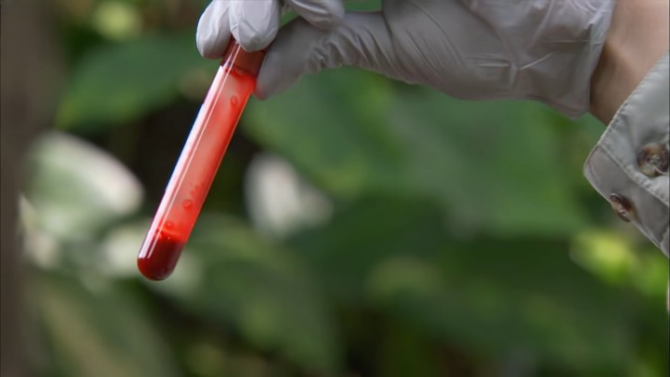
While it’s a fascinating idea, the concept of harvesting crocodile blood for its immune properties is currently more theoretical than practical.
Crocodile blood does contain potent antimicrobial peptides, but translating these into viable treatments for human illnesses involves complex scientific and ethical challenges, including issues of sustainability and animal welfare.
Could a Komodo Dragon’s Venom Evolve to Overcome Crocodile Immunity?
While it’s theoretically possible for a Komodo dragon’s venom to evolve to become more effective against crocodile immunity, such an evolutionary change would likely take a long time and would depend on regular interactions between the two species to exert the necessary selective pressure.
Given that they don’t typically interact in the wild, such an evolutionary development seems unlikely.
Closing Thoughts
As of now, we’re left with educated guesses and speculative theories. However, the question invites further study, and who knows what future research may uncover. The enigma of whether a crocodile could survive a Komodo dragon’s bite may yet be solved, providing another fascinating chapter in our understanding of the natural world.
Thank you for joining me on this journey through venom, immunity, and the mysterious interactions that happen when titans of the animal kingdom collide. The world is full of biological wonders waiting to be discovered, and every question we ask brings us one step closer to unraveling the intricacies of life on Earth.

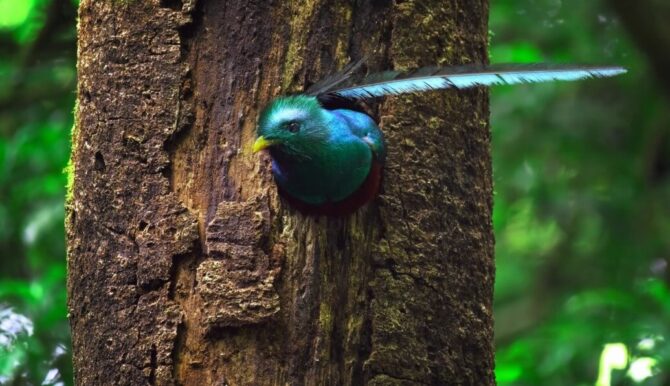


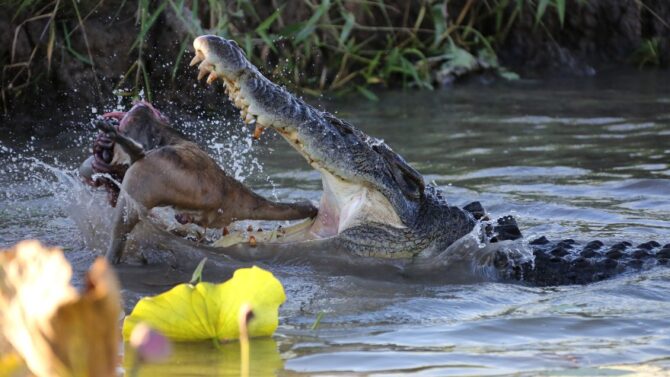
![Do Crocodiles Have Tongues & Taste Buds [Answered]](https://animalvivid.com/wp-content/uploads/2022/10/Do-Crocodiles-Have-Tongues-Taste-Buds-Answered.jpg.webp)
